The Apple TV+ series Hello Tomorrow! imagines a world where mankind can live a life of luxury on the moon. At least, that’s the dream that con man Jack Billings (Billy Crudup) is selling as he travels from town to town talking folks into buying timeshares on the moon. Such a future can’t possibly be realistic, and yet not only do people believe in that dream, but the sales team Jack puts together does too.
Speaking of building a team, the show’s Casting Directors Stephanie Holbrook and Douglas Aibel were charged with finding the rest of the actors surrounding Crudup, and they turned to the New York theater scene to assemble the talented ensemble, which includes Hank Azaria, Alison Pill, Haneefah Wood, Dewshane Williams, and Nicholas Podany, as well as Jacki Weaver, Matthew Maher, Dagmara Domińczyk, and Michael Paul Chan.
Below the Line recently spoke to Holbrook and Aibel about the process of coming on board the futuristic series, which required a certain vigilance in terms of language and period believability, not to mention the right energy, as series Creators Amit Bhalla and Lucas Jansen were going for something very specific.
Holbrook and Aibel highlighted the positive environment in which they felt free to work without boundaries and to help create characters based on what the actors themselves brought into auditions rather than trying to find actors who fit very rigid characters.
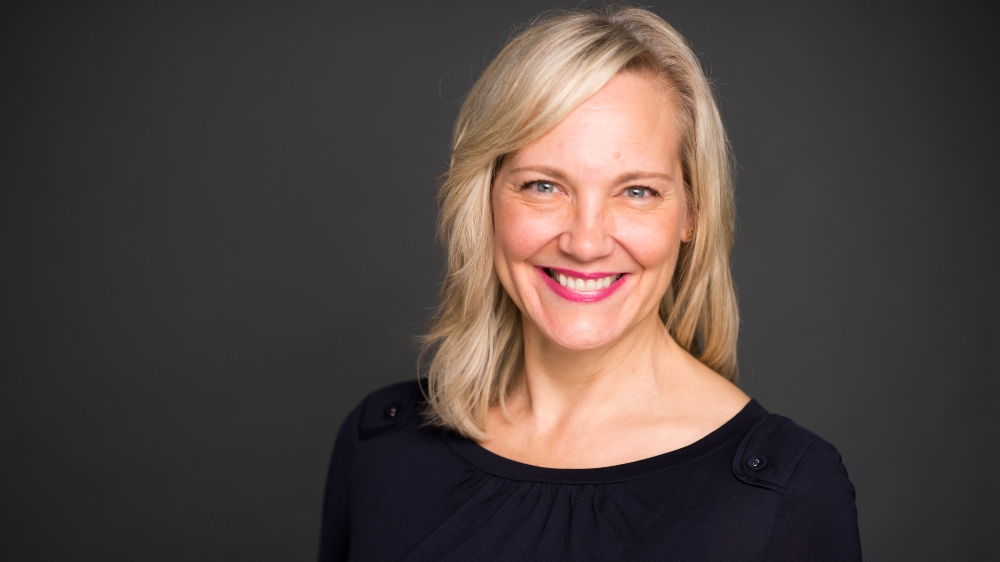
Below the Line: When did you become attached to this series and who was already cast at that point?
Stephanie Holbrook: 2021, and Billy Crudup was attached. That’s it.
BTL: Where did you go from there?
Holbrook: I remember in initial conversations, we were encouraged to audition as many theater actors as possible, which I think is one of the reasons that they wanted us to work on the project — because we love theater actors so much. There’s a style in which the show is written where it’s obviously a period piece with futuristic elements, so the actors were really expected to speak the way you would speak back then, and not modern language. It feels like maybe that was the encouragement to read theater actors — because they’re very experienced with working with text and relying on text. There was a very specific style in which the dialogue was written which theater actors are able to tackle.
Douglas Aibel: When we were first given a script, you open it up and you’re like, “Wow, this is a completely new world that we’re handed.” On the one hand, some of the language had the spirit of 1940s film noir movies — you can imagine Barbara Stanwyck or Jean Arthur saying wisecracking lines to the other salesperson, or, going ahead to Glengarry Glen Ross and salesmen speaking very rapid-fire.
It also had this really interesting futuristic universe that it was existing in, but I think we were both aware in reading the first couple [of] scripts that it did require this wonderfully sharp, fast-paced delivery, and we had to find actors who were skilled at that — both comedically, but who could also find the humanity inside each and every character. Each and every one of these characters is a bit broken, is a seeker [or] someone drawn to this field because they’re looking to make their lives better — both the salespeople and the people buying. So you really needed actors with a lot of humanity and depth as well as wit.
Holbrook: Most of the characters had a journey and a transformation by the end, in some way. Whether you were introduced to them and it seemed like there was nothing but love and purity and then there was another side to them, or Joey’s journey, which was [from] complete naivety to him learning about life and seeing the dark side of life by the end.
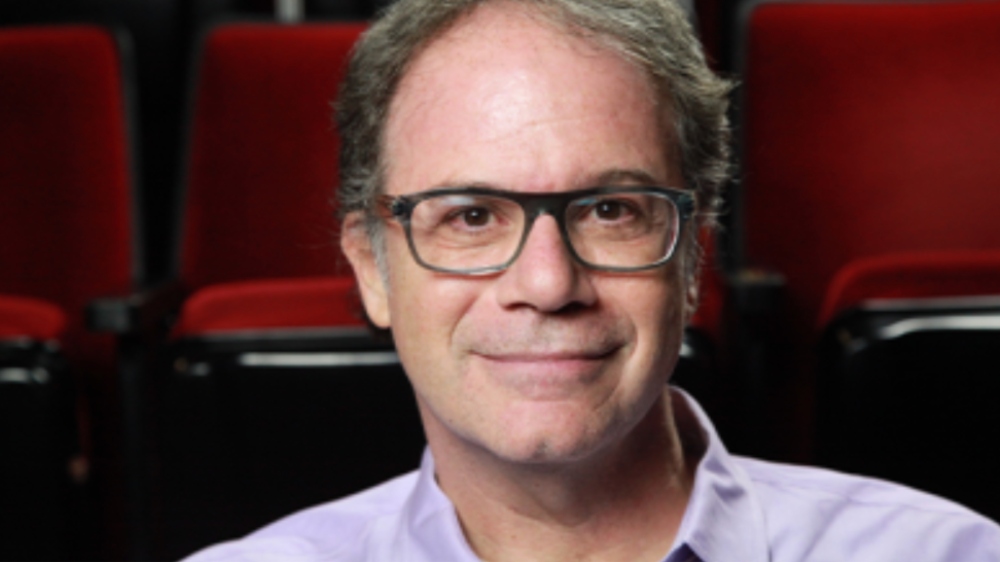
BTL: Billy and Hank Azaria could easily be from a different era without trying very hard, which is part of what makes them so appealing. Alison Pill is someone who slips into this role in a quietly terrifying way — how did you go about casting her?
Holbrook: She is so brilliant, and she can do just about anything. She’s got a timeless quality about her, so I think she was able to slide into this period seamlessly. She is someone who, for me, her performance is always unexpected, and she really brought it in the auditions. We did chemistry reads, and there was always something new, but she’s also so skilled and so technical that whatever a team wants from her, they can get that out of her performance.
Aibel: It’s a very rare actor or actress who can play unbridled rage or panicked terror and still remain completely appealing [to] the viewer. That’s something Alison is uniquely suited to, and she’s just an incredible actress — equally adept at comedy and drama, playing characters younger than she is and older than she is. She’s not just versatile, but [she] has this unique, slightly off-kilter wit about her, which is something Billy has, too.
I want to add as well that I had the privilege of watching Billy make his professional debut in a play at my theater in the 1990s, and it’s funny to think of him as a venerable actor because then he was just out of NYU’s graduate acting program and [he] was just this remarkable young talent. With Billy in a producer role as well as the lead actor, it was quite fascinating to interact with him.
Living in the Zoom and COVID era, all of the chemistry reads had to happen on Zoom. Billy was very generous with his time and worked with every actor. He loved everybody who read for him. He was just so giving in the process, and it was also useful for him in that process to explore and find nuance in the rhythms of the text and the character before they actually went into rehearsal.
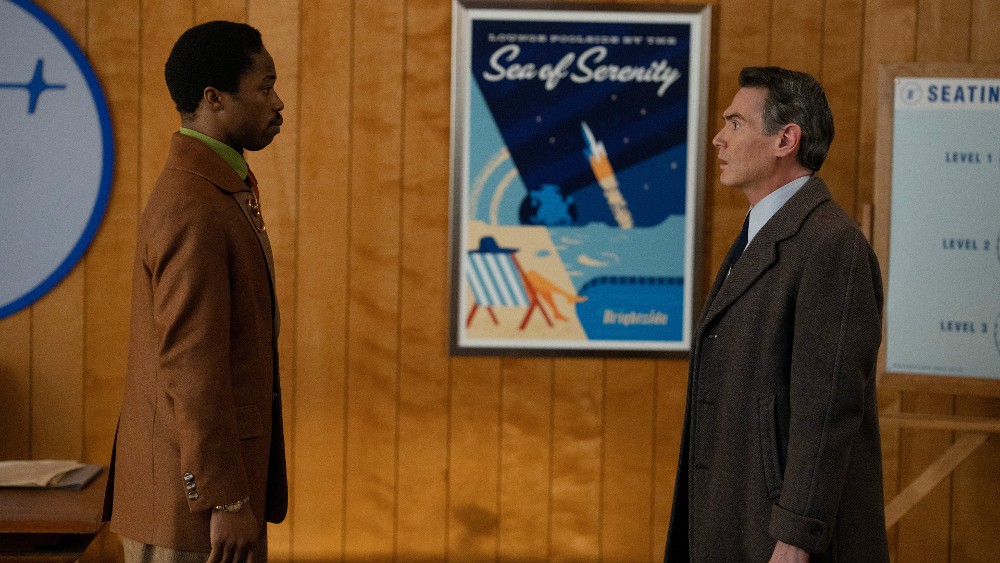
BTL: There’s a certain magnetism to watching Herb and Betty. They’re both so in-your-face and vivid. What was the search for Dewshane Williams and Susan Heyward like?
Holbrook: Herb was the challenge of the casting process. Herb was so tricky. We read upwards of 500 people for that role, and we considered more than that! It was just a particular thing that we needed from Herb. It had to be someone with exuberance and enthusiasm just bursting forth, but without being too much and pushing it too much. It had to feel authentic and coming from a true place.
We read some fantastic actors, as you can imagine, with that many people that you’re reading. Dewshane just brought that specific balance, and he, too, had to go through this transformation. We’re seeing different shades of him as the project goes along, so it had to be a really skilled actor who wasn’t just one-note and wasn’t just exuberant and enthusiastic. He could also bring the more dramatic layers later.
Once we got him, we were able to find a nice balance. There had to be a lot of comedy between Herb and the other characters, and also Herb and Betty. Susan is amazing, and we’ve read her and known her for a really long time. She also fits into the period nicely and had a little bit of that assertive energy that she could [use to] push Herb along. It really worked out.
Aibel: Again, [she’s] an actress who comes from the New York theater and really has a strong theatrical background and a great feel for language, which really served her well in this case.
BTL: Haneefah Wood is terrific. Shirley feels more stable than everyone, capable of seeing the big picture without being deluded by dreams of what could be.
Holbrook: That character was described as the base, where everyone had to work around her. She was the leader of the group. She was no bullshit, [and] she, too, had to be funny. Every once in a while, you’ll read a bunch of people, and they all do great in the audition, they’re solid, but that one person, the audition just hits in a different way. I think when Haneefah read, everybody was like, ‘She’s it.’ She’s grounded, she’s confident, she’s fun and funny, and [she’s] got pizzazz. She can play with all of the different personalities and all of the characters. She was just it.
Aibel: In a way, when I watch the show, it’s like she’s our representative. She’s watching this madness unfold as we are. She has a strong meter of understanding the truth and such. There are just times when, early on in a process, especially before a show has started — we’ve both worked in film and television, but with series like this — when you’re on the virgin voyage prior to the pilot, there are many ways you can look at how a character is created. Sometimes, an actor’s first audition actually just creates the track of what a character will be. That was one of those cases where it felt inspired from the moment she auditioned for it. Everyone knew she was the choice.
Holbrook: She also had to have those layers of vulnerability. She had a weakness. Her love was cracking that shell a little bit, and she could handle that, for sure.
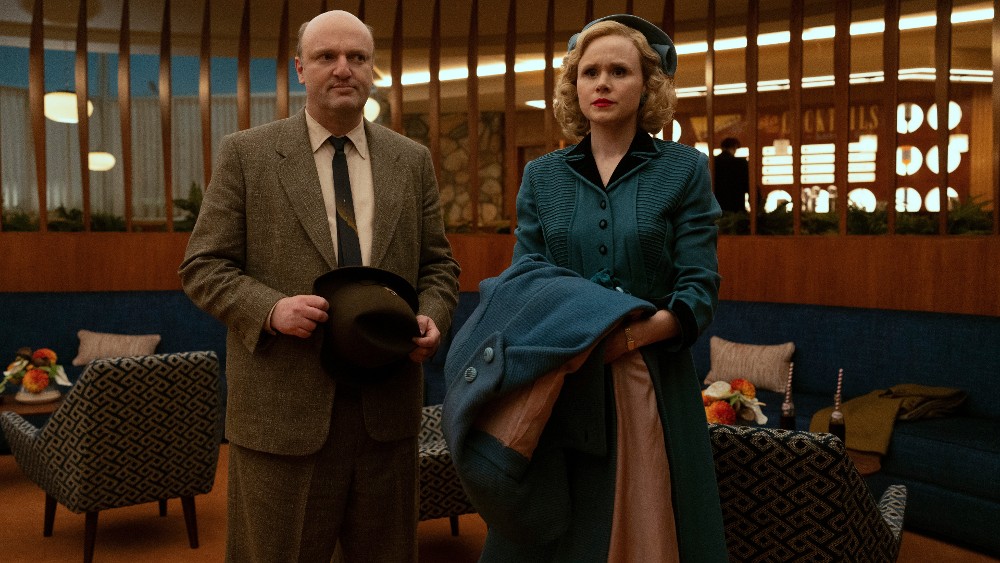
BTL: I’m also very curious about Lester and Matthew Maher. I would describe him as robotic but also endearing, and he has to hit the right way… otherwise, that character just doesn’t work.
Aibel: That’s a good example. There are people in the show — Matthew Maher is one, Annie McNamara is another, Joel Marsh Garland is another — these are actors who cut their teeth in experimental theater, way off-Broadway. They’re noted in the downtown theater scene almost as legends in terms of creating a distinctive, eccentric comic profile.
I remember many plays I saw Annie do, she was always playing these characters who spoke so rapidly and had a fascinating neurotic energy. Matthew, of course, has this wonderfully goofy, offbeat spirit to him. To infuse this show not with a New York spirit, because that sounds territorial, but with less classically-trained actors who were audacious and daring in their theatrical choices, we knew would bring a lot to this, which they did.
Holbrook: Going back to the language, it’s not just the period and the clip of the dialogue. It’s also specific words where the syllables were switched, and it was hilarious watching some of the auditions and seeing some of the actors try to take this down. He was just absolutely brilliant about finding a way to act and not think about the fact that he was switching up syllables. He’s just so funny, and we played a lot in the callback with him, and it was just a gift to be able to watch.
BTL: And then, with Elle and Dagmara Domińczyk, you have someone who’s a bit more reserved and intimidating. What was the search like for her?
Holbrook: That was a fun one, too. There were so many different types of people that we read for a lot of these parts. This team was so interesting because they were so open that it was freeing, as you’re casting, to just throw the net wide. If you went back to look at the list of people that we were considering, it was a lot of different types. Dagmara just brought something very alluring and confident, and she played [it] the way that the role should be played with Billy, and it worked out really well.
Aibel: As both a person and an artist, she has a great wit, and there’s a sharpness about her. A very positive brilliance and energy and charm, so it was just a lovely color to put in. We always say this about casting — it’s taking an empty canvas and then filling it in. On this show in particular, we were really handed the opportunity to create a completely new landscape. This is not a world that exists. It’s an imaginary landscape, and so we were drawing on a lot of different sensibilities and styles and backgrounds of these characters because there were no rules about who these people could be. Normally, in casting, you have these specific character breakdowns, what their ethnicity is or their religious background, or whatever. It was a much looser, open process.
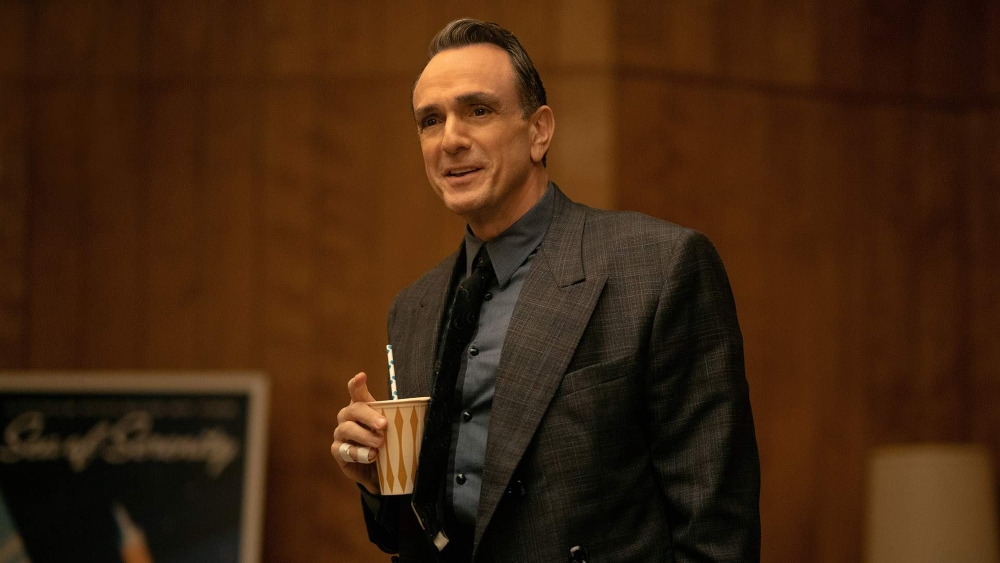
BTL: Have you heard anything about a second season?
Holbrook: Not I.
Aibel: We haven’t heard anything. We’ll keep our fingers crossed.
BTL: You’ve worked on so many other projects, both together and separately, and I’d love to ask you about Somewhere in Queens, which I just got to talk about with director Ray Romano for our sister site Above the Line.
Holbrook: That was so much fun. Ray Romano is fun and funny, and the script was fantastic. It was a true New York/Queens experience. We got a kick out of a lot of the auditions.
Aibel: It was delightful. He’s a delight to work with, he’s very open. A great deal of humility and kindness in the process. We went through a very deliberative and long process to find the young male lead — we needed to find a kid who was an accomplished basketball player who would also be believable as Ray’s son. We saw a lot of people, and one thing I recall, which really touched me, was that he wrote a letter or an e-mail to almost everybody who had more than one audition. It was just so kind.
As an actor and as an artist, he just had such respect for everybody who came in, even for little bitty parts. When you do a movie where a director is writing about their own life or their own history, in part, it’s always interesting because every character is based on their uncle or their cousin or someone else. He acknowledged that, and, of course, there are a lot of Romanos in there scattered throughout, if you notice. We really enjoyed working with them.
Holbrook: Having such a personal connection to the story, it seemed to mean a lot to him to cast really authentically. There was no room for an over-the-top read that wasn’t coming from a truthful place. I think the performances are wonderful because they really do feel authentic.
Season 1 of Hello Tomorrow! is now streaming in full on Apple TV+.





